The Air Force's Famed Test Pilot School Is Going To Space
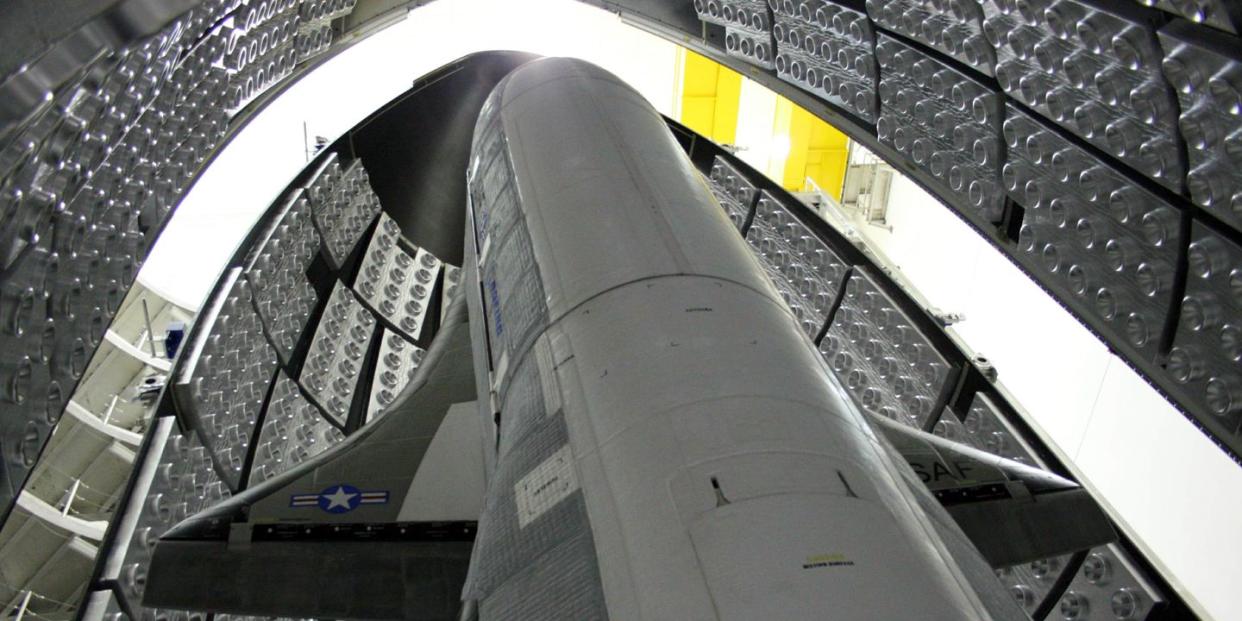
The Air Force’s Test Pilot School at Edwards Air Force Base has existed at the leading edge of the aerospace’s newest technologies for 75 years. Now, as the Pentagon focuses on the military importance of Earth’s orbit, the institution is forming a new school specializing in space hardware.
Maj. Gen. Chris Azzano, tells Popular Mechanics that he secured Air Force funding to create a space curriculum for the Test Pilot School.
“This is the same institution that graduated Chuck Yeager and so many of the other world famous test pilots, where Jimmy Doolittle III was a commandant,” he says. “It just has such a rich heritage, now we're looking even further into the orbital domain.”
The yet-unnamed school is expected to open in late 2020. It will be a separate effort that mirrors the rest of the TPS but will stand as its own entity.
“One college will be the atmospheric domain, the traditional Test Pilot School, learning about airplanes and the things that airplanes do,” says Col. Ryan Blake, the test pilot school’s commandant. “The other college in this university would be the space domain. We're splitting off because, frankly, there's just not a lot more room in our curriculum.”
"Really this is the Flash Gordon moment for me," Azzano says, "where we take all the important lessons that we’ve learned in atmospheric flight, and now we’re looking skyward to a degree that we never have before."
Outgrowing a Famous Name
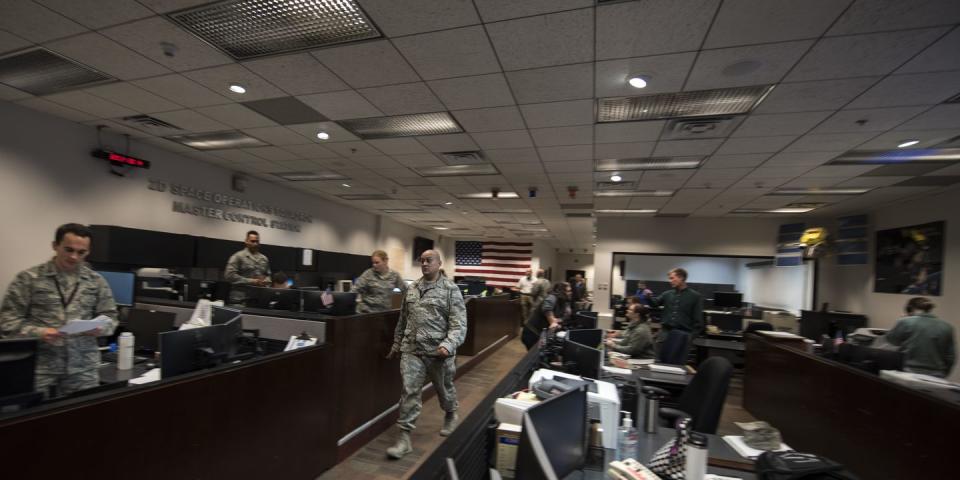
Don’t let the name fool you: Half of the Test Pilot School students already are not pilots but engineers.
“We bring in combat systems officers, navigators, weapons officers, those types,” Blake says. “We don't teach the engineers how to be pilots. We teach them how to be flight test engineers. And we don't teach the combat systems officers how to be pilots or engineers. We teach them how to be test combat system officers.”
Adding a space specialty to the TPS program seems like a natural extension, but establishing a specialist school represents a cultural shift for the storied organization. Until now, all the graduates left the school with the same knowledge of how to establish a test program. They would then apply that to whatever needs testing.
“I actually firmly believe that our students could go out and test bulldozers and toaster ovens tomorrow if we asked them to because of the test foundations,” says Blake. “Our graduates go out and, after spending a year learning mainly how to test aircraft, they go on and be completely successful testing spacecraft, missiles, bombs, computers and things like that.”
But space is one area that the Air Force believes is different and urgent enough to require its own program. “We're realizing is that whereas we are not trying to create specialists, there are some unique differences in some major domains,” Blake says. “The differences between the atmospheric domain, where friction and lift and drag dominate, and the space domain, where there's no lift and drag and friction, but there's a lot of orbital mechanics.”
Azzano says the set of skills that is common to any type of testing applies to space. “There's this fundamental notion of discipline, scientific rigor, and risk reduction,” he says. “Then, you integrate that with people who understand the space domain very well.”
Blake says that the space school curriculum will be based on the same test and evaluation foundation that grounds the venerable Test Pilot School. “We’ll teach those test foundations and then we will overlay the specific engineering and hands-on exercise concepts, things like precision navigation and timing. Currently we get from the GPS satellite system but there's all sorts of other ways to do that. So that would be a big area.”
Blake adds the curriculum would also include satellite mechanics, station keeping, and on-orbit maneuvering and defending against cyber or physical attacks.
Azzano also says the curriculum will not be overly theoretical. “It's immediately applicable to space, designed around the future space operators,” he says. “Of course, with the relevant emphasis on space as a war fighting domain.”
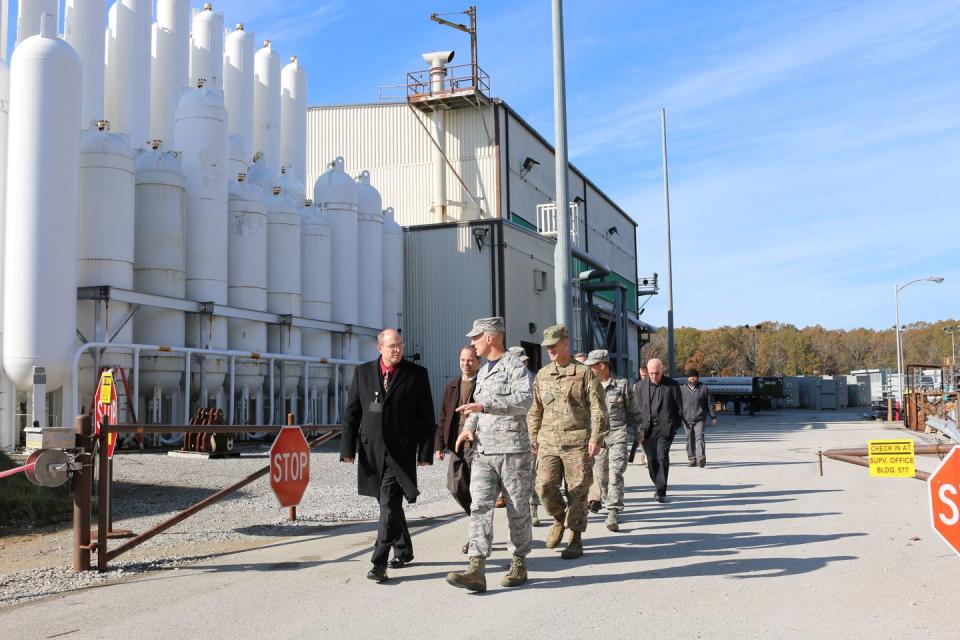
The initial focus of the as-of-yet unnamed school will be turning out graduates after a shorter course than the one at the year-long TPS. “The Test Pilot School has had 75 years to evolve and it started as a three-month course,” Blake says. “Our current course of action is to start this new one as a three-month course just like the pilot school did 75 years ago.”
This is a career opportunity for the front line space operators, like the airmen who operate the spacecraft that provide GPS. Popular Mechanics spent some time with them in Colorado and heard the behind-the-scenes stories of their jobs.
“We would train up space operators who come in, just like our pilots come in experience flying airplanes,” Blake says. “These space operators would come in with experience in satellites and we would just teach them how to do tests and evaluations.”
The concept now aims to put 48 students through the school a year. “You could teach the course a couple of times a year as we refine our test and evaluation education for space,” he says. “Eventually, down the line, you could see that growing into a longer course.”
“Space Superiority Operations”
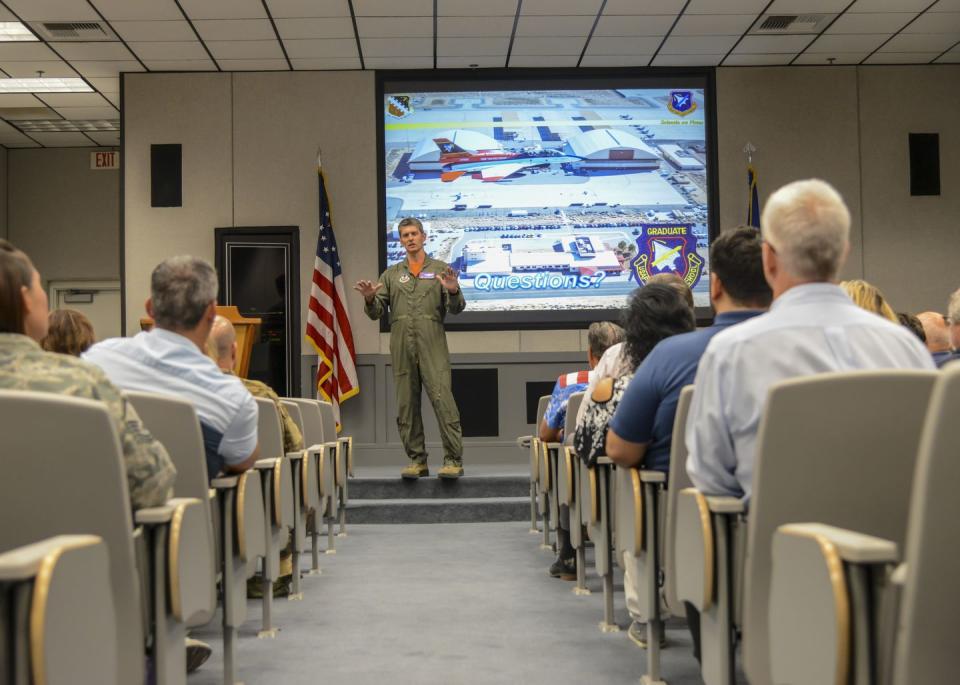
Blake graduated from TPS in December 2008, and went on to serve as the 96th Operations Group commander at Eglin Air Force Base in Florida. During his career he’s accrued more than 2,400 military flight hours in 44 aircraft types—but even he didn’t see the space school coming.
“A year ago when I took over command of the school, I didn't think, hey, in two years from now there's going to be another school focusing on space,” he says. “So yeah, all that's happened pretty quickly.”
But his experience at Eglin, reshaping the command to accommodate a new cyberspace test group, showed him that rapid change is in the air. This is true when it comes to the Air Force’s two chief priorities: cyber and space operations.
The emphasis on space at the Test Pilot School is certainly part of the Pentagon’s wider effort to focus on dominating space. Last week the Trump administration established U.S. Space Command (or rather, re-established it from its original, 1985 form) and has been pushing for a separate branch of the military devoted to space.
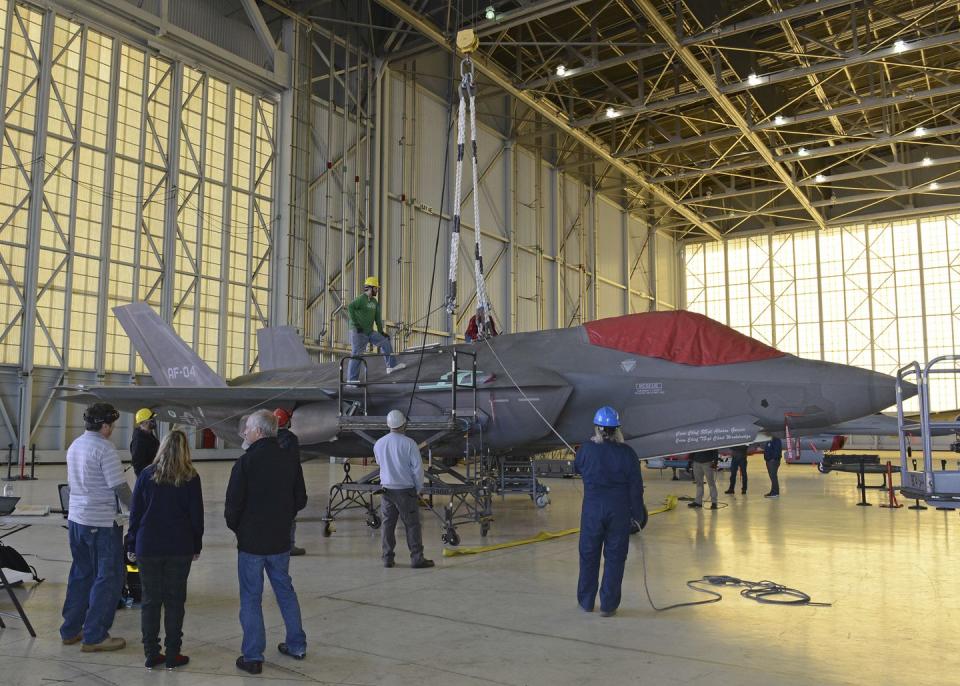
“The establishment of the Department of Defense’s 11th combatant command dedicated to space operations reflects … the evolution of the threats to U.S. space systems, and the importance of deterring potential adversaries from challenging or attacking U.S. space systems,” SPACECOM’s first commander Gen. John Raymond, said on Friday.
The Test Pilot School will have direct ties to the new command, since the satellite operators and other personnel will come from SPACECOM units. For example, personnel at Schriever Air Force Base in Colorado, one of the pools of the school’s pupils, will become part of the new command via a new Joint Task Force Space Defense (JTS-SD) announced on Friday.
Raymond called the JTF-SD’s mission “to conduct space superiority operations in unified action with mission partners to deter aggression, defend space capability, and when directed, defeat adversaries throughout the continuum of conflict.”
The new spacecraft, sensors and weapons of this era new conflict will be vetted—and maybe one day crewed—by TPS graduates.
The Return Buck Rodgers
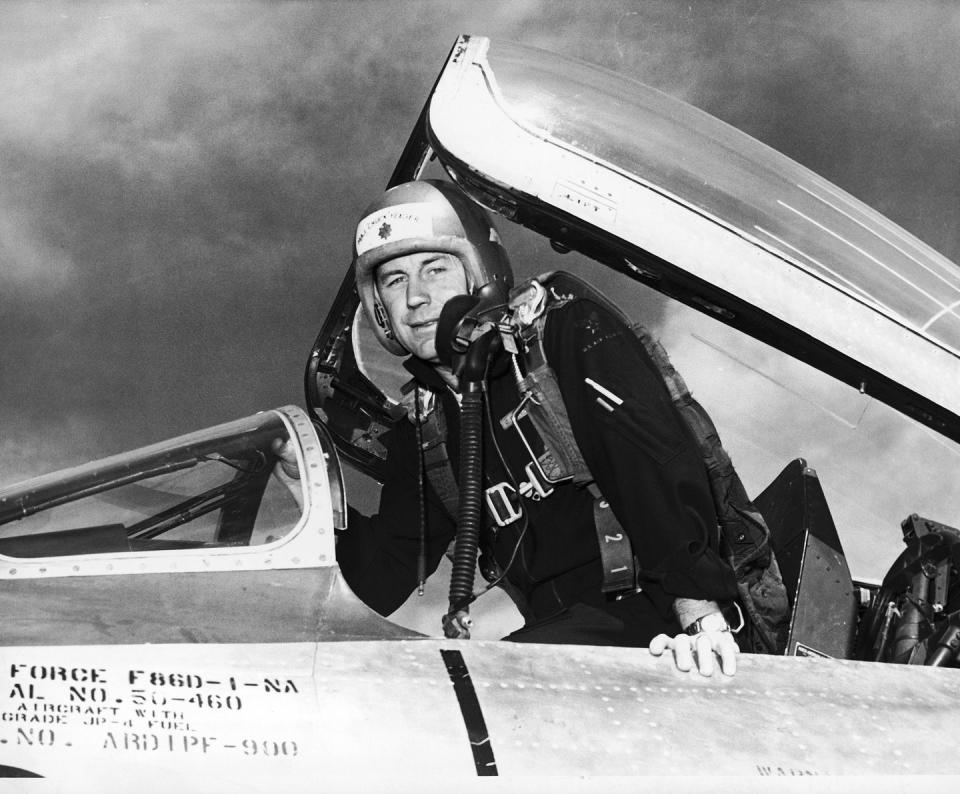
Right now, NASA trains U.S. government astronauts exclusively. But this wasn’t always the case.
“In the 1960s the Air Force's manned space program was specific towards Air Force needs and so this school, when Chuck Yeager himself was the commandant, was training potential Air Force astronauts for Air Force manned space programs,” Blake says. “None of those programs ever came to fruition.”
But will the school that graduated Chuck Yeager, Michael Collins, and Buzz Aldrin one day train airmen that will fly into space?
“The short answer is it's not in the current plan,” Blake says. “If the Air Force ever got a manned space mission, then I think the Test Pilot School or the Test Space School, whatever you want to call it, would be a logical place to train them…The school does have some experience in past decades with training astronauts, but currently the Air Force does not have a manned space mission. And so at least in the near term, we will not be training astronauts."
More changes are expected at the Test Pilot School as the Air Forces continues to evolving to face emerging threats and future battlefields. “I am now pushing very hard to develop a cyber curriculum at the Test Pilot School so that we can integrate all three curricula and achieve that vision of multi-domain operations,” says Gen. Azzano. “In the future, we might not even call them test pilots anymore, maybe we'll call them test professionals.”
Adopting a new name may be harder to implement than some of his other changes, given the deep tradition of the Test Pilot School and its foundational place in the evolution of aviation.
“Sometimes that name is inappropriate for what we do,” Blake concedes. “But it certainly has history behind it.”
You Might Also Like

